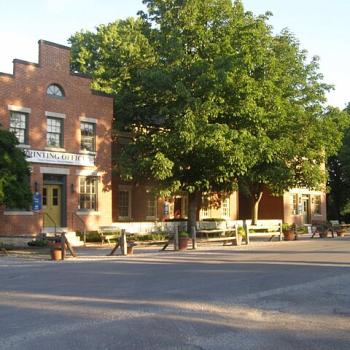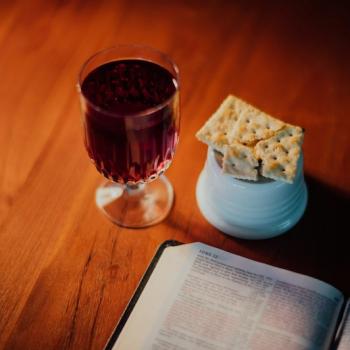 Few events are more inspiring, more exciting, and more romanticized than a true popular uprising. The youth charge the barricades, tear gas canisters fly, shots ring out, and the martyrs fall. But then suddenly . . . something changes. Police switch sides. Army units brought in to quell unrest let the people rampage. Formerly imposing regime functionaries literally take their money and run (sometimes even to Disneyland), and intrepid reporters walk with ecstatic revolutionaries through the looted opulence of the tyrant's palace. Good triumphs, evil is vanquished, and the nation is reborn.
Few events are more inspiring, more exciting, and more romanticized than a true popular uprising. The youth charge the barricades, tear gas canisters fly, shots ring out, and the martyrs fall. But then suddenly . . . something changes. Police switch sides. Army units brought in to quell unrest let the people rampage. Formerly imposing regime functionaries literally take their money and run (sometimes even to Disneyland), and intrepid reporters walk with ecstatic revolutionaries through the looted opulence of the tyrant's palace. Good triumphs, evil is vanquished, and the nation is reborn.
We Americans have a soft spot for revolution. For good reason. Our own American Revolution marked not only the birth of our country but a sea change in world history—the emergence of ultimately the world's most dominant power and a force, along with its mother country, Great Britain, that ultimately triumphed over the dark tyrannies of German fascism and Soviet communism. Thomas Jefferson, easily one of our most revered founders, extolled the virtues of "a little rebellion now and then." And modern examples of nonviolent resistance, from Gandhi's India, to Martin Luther King's marches through the American south, to the "People Power Revolution" in the Philippines show us revolutionary movements at their best—as a call to hold power accountable.
But revolutions can also be a prelude to unspeakable horror. As we watch the unfolding dramas in Tunisia and Egypt, we should remember the Reign of Terror that followed the storming of the Bastille; Lenin, Mao's, and Pol Pot's communist genocides; and the revolutionary Islamic Republic of Iran that stands today, busily building the bomb while supporting worldwide terrorism and uttering apocalyptic threats against Israel and the Jewish people.
Will democracy follow tyranny in Tunisia, or will the new boss be much like the old boss? Time will tell, but history demonstrates that riots don't create jobs, the culture you take into a revolution is typically the culture that emerges, and violent change often serves to enable not "the people" broadly but those particular revolutionaries who are the most viciously violent.
In the Middle East, there are few good options. At times it seems as if Islamic extremists want democracy more than anyone. Or, more precisely, they want one election—the one that brings them to power. In fact, Islamic radicals often have the only pre-existing, ready-to-rule, alternative power structure. The Thomas Jeffersons or Gandhis of the Middle East were executed before anyone could know their names, co-opted by regimes who ruled not just with an iron fist but also with selective use of wealth and favors, or settled nicely into a university faculty, where few are willing to forsake a townhouse and tenure for the turmoil of home.
I can distinctly remember my own first-hand brush with (attempted) revolution. I was in Diyala Province, Iraq, when Muqtada al-Sadr ended his cease-fire, black flags sprouted in towns and villages in our area of operations, and both the al Qaeda and Mahdi militias sought to cut us off from resupply. The horror of these "revolutionary" forces could not be overstated, and their own reign of terror cost countless lives in the Diyala countryside.
We defeated them, thank God, fighting alongside the soldiers of a fledgling Iraqi democracy, established not by revolution but through invasion—a democracy that was slowly but surely winning over the people and establishing its independent credibility and viability.
As Cairo burns, the future is uncertain. Who would rule after Mubarak? Could Nobel Peace Prize winner Mohammed ElBaradei, who courageously returned home as so many others watch from afar, be Egypt's Thomas Jefferson? Or will something infinitely darker emerge from the ruins, an Islamist Egypt, one that revives the force-on-force confrontation with Israel and acts as a Sunni version of Shiite Iran? Or perhaps the revolution will die on the vine, and Egyptians will pick up the pieces and return to the normal repression of their daily lives.
It is a sign of the ambiguity of history—and the almost infinite complexity of the Middle East—that it is hard to know what to think about Egypt, Tunisia, and even the now-squashed recent rebellion in Iran. Peace and justice rarely spring from revolutionary cauldrons of hate and violence, yet the despots of the Middle East also feed the rage that spawns rebellion.
In the meantime, as Facebooking, Twittering youth take to the streets, I'll hold my breath, hoping for nations that look more like Iraq than Iran, but knowing that the battle on the streets may not be between light and darkness but between the evil we know and the evil that may yet emerge.
1/31/2011 5:00:00 AM





